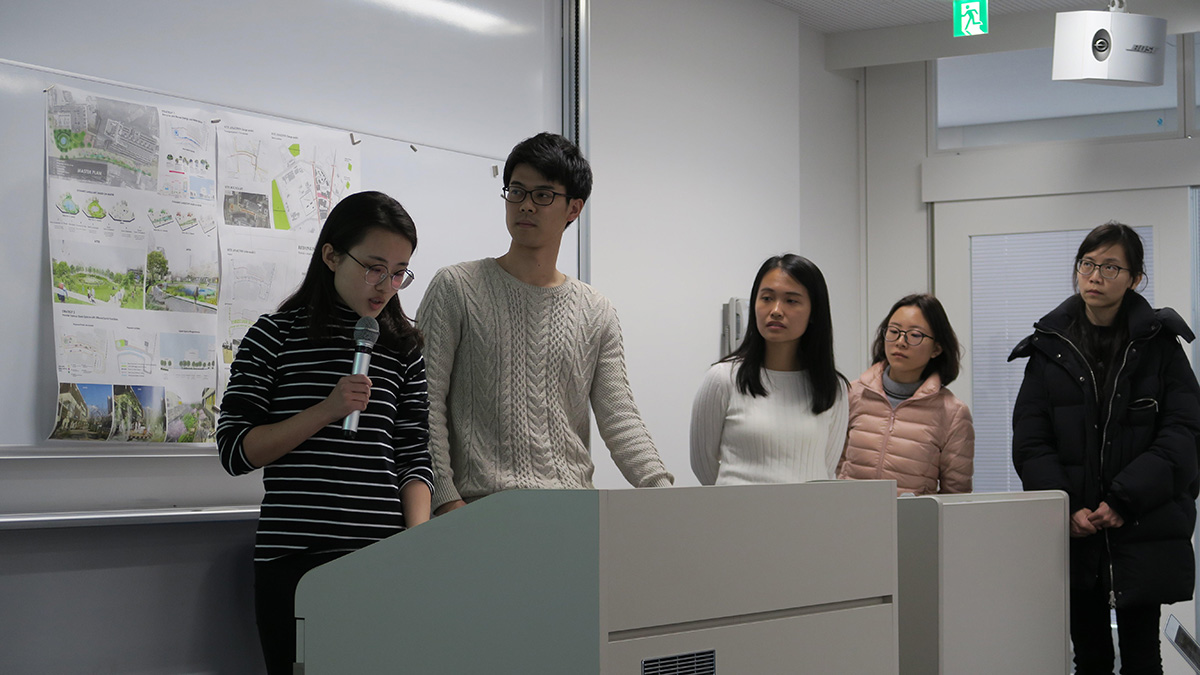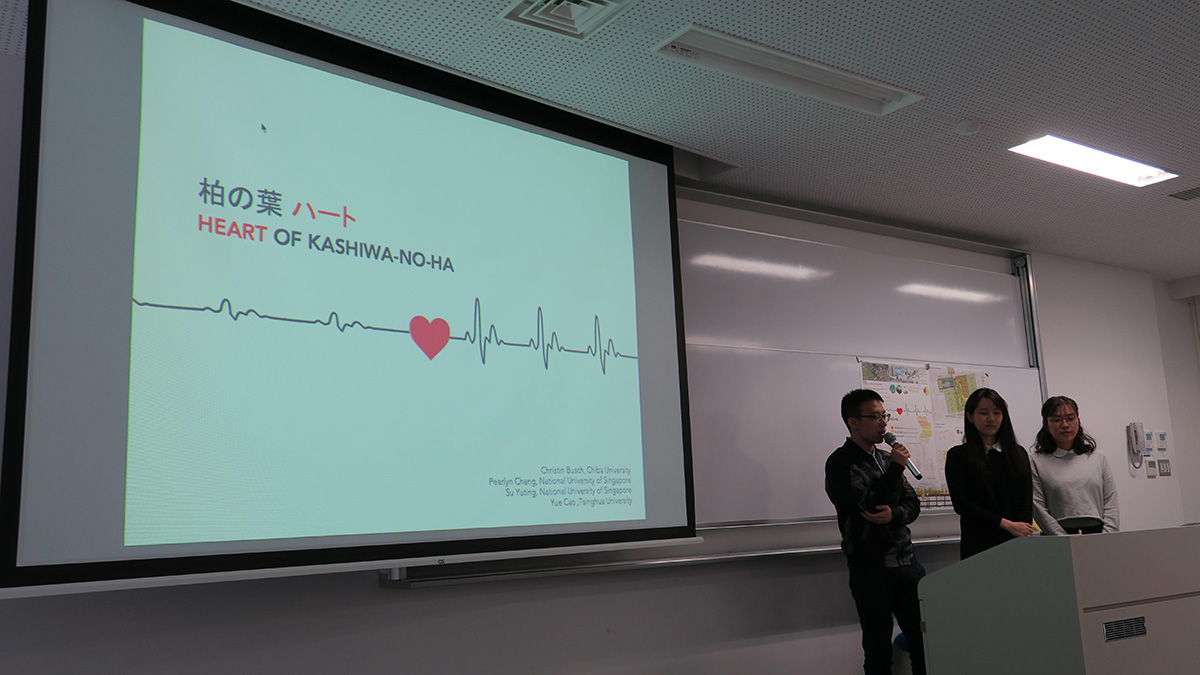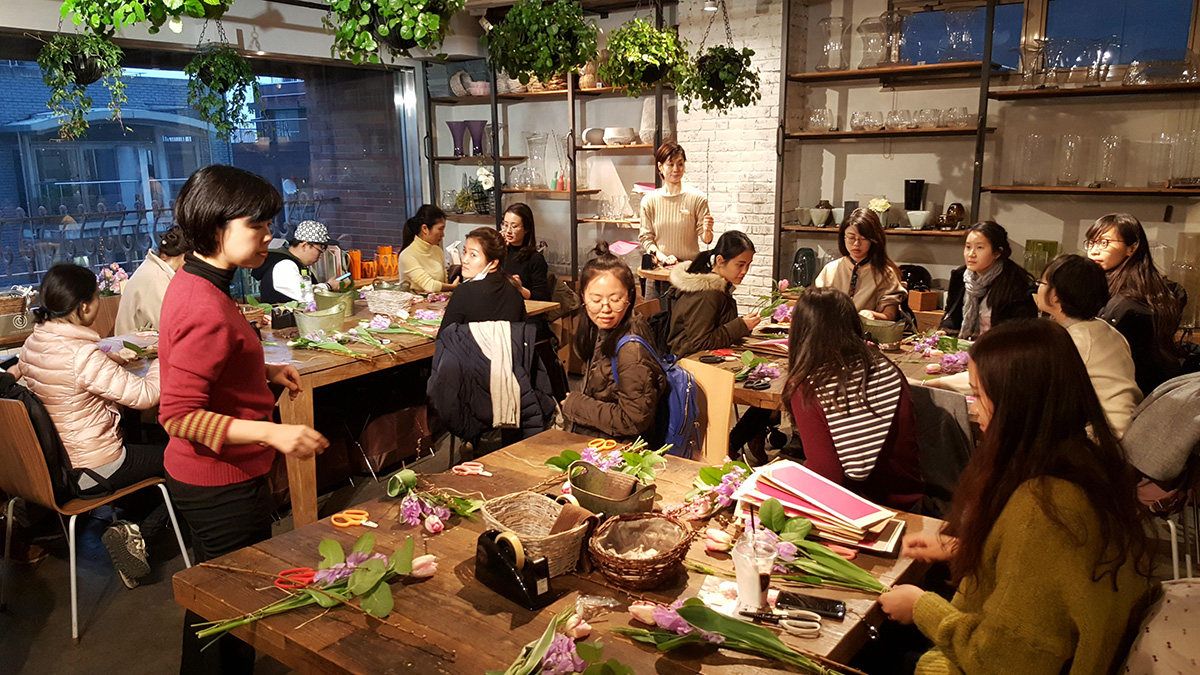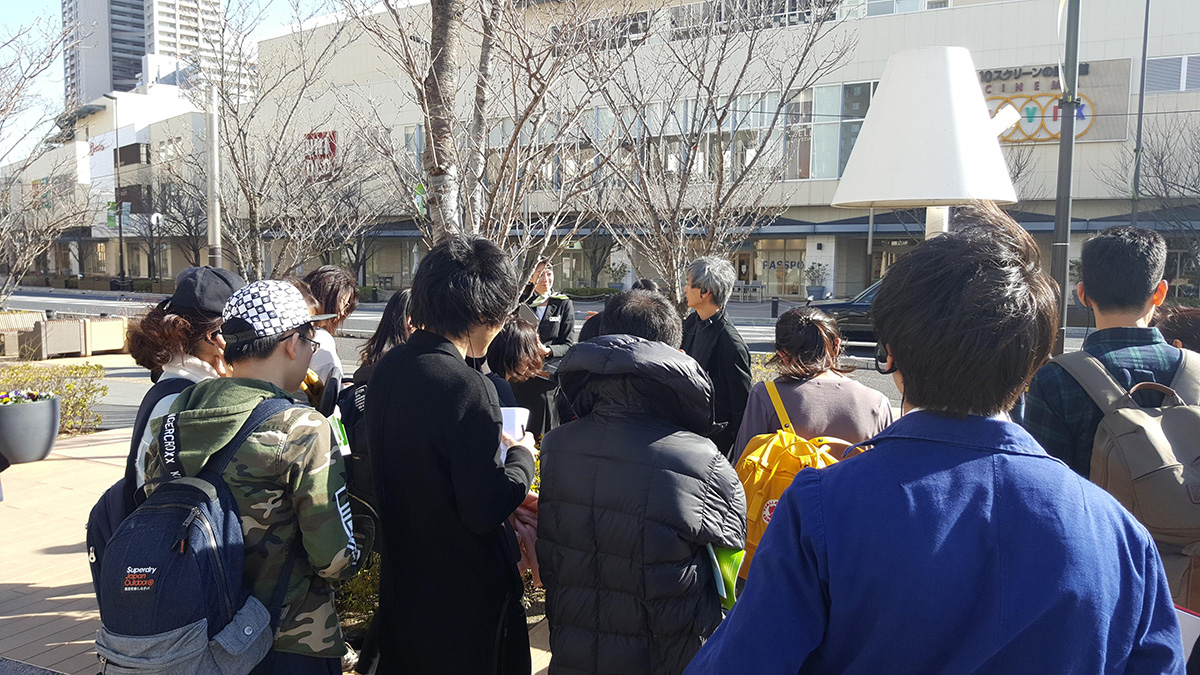
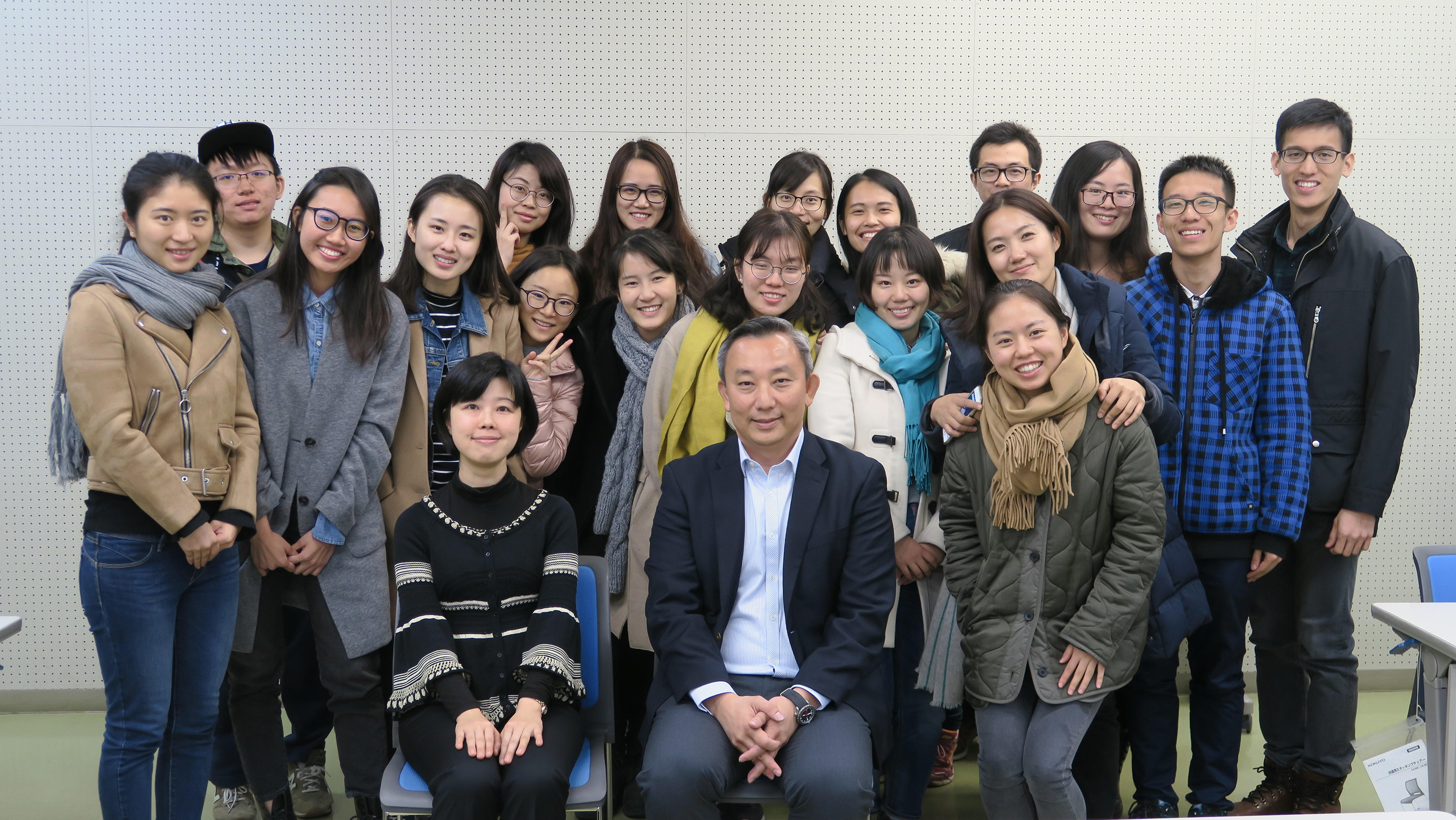
The 2016 Winter Landscape Workshop of Campus Asia Plant Environment innovation was held in Center for Environment, Health and Field Sciences, Chiba University in Kashiwa, Chiba. in collaboration with Tsinghua University (China), National University of Singapore (Singapore), and Chiba University. The workshop was held during 17 Feb - 25 Feb, 2017. Prof. Tan Puay Yok and Prof. Hwang Yun Hye from Department of Architecture, National University of Singapore, and Prof. Ayako Nagase from College of Liberal Arts and Sciences, and Prof. Ryosuke Shimoda from Department of Horticulture, Chiba University supervised the workshop.
Objective of Design Workshop
Using an existing site, the workshop asks students to explore the potential of an existing shopping mall 'LALA PORT' for greening the city. The site is chosen as it is located near the Kashiwanoaha station and playing a role as a public space especially for families, but one which seems to be underutilized, or its potential not fully optimized.
In developing the design, the broad considerations are the appreciation of the relevance of greenery in the development of Smart City of the future through benefits greenery can bring, how greenery can be made more "ecological", and how even a simple existing space through deliberate design, can potentially deliver more than conventional designs. The students will choose from one site in LALA PORT and show the design.
The design objectives are:
1) Conduct an analysis of current conditions and the concept of smart city. This includes an assessment of the current coverage and distribution of green spaces in the site, how such spaces are used (or not used), environmental constraints faced in implementing greenery, the needs of people, relationships between the site and adjacent neighborhoods, etc.
2) Identify and articulate key issues that can be addressed through planning and design, keeping in mind current encumbrances.
3) Address how selected sites can contribute to the concept of Kashiwanoha Smart City
4) Develop a conceptual design for how green spaces can be better revamped, new spaces added or amalgamated to deliver more functions, either in improving environmental performance (biophysical or biodiversity), or better meet the needs of people.
The design should be presented in 2 A1 posters. Although only conceptual schemes are needed, important cross-sections to illustrate key innovations, or concepts must be included. Design must be grounded in technical assessment or empirical evidence gathered from site study.
